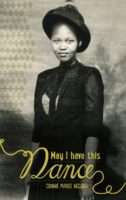Our sense of belonging stems from the understanding that we are part of something larger than ourselves. For most of us, the first larger structure we are exposed to is our extended family.
Extended families today are under siege. The closeness of years gone by has diminished. Sundays used to be when families would gather for lunch at the grandmother’s house, giving grown-up siblings the opportunity to touch base and cousins the chance to play together. A strong feeling and sense of family was maintained. I know people who don’t have this family experience, even in our African society. Grandmothers sit alone in their flats or old-age homes on Sundays. They have very little communication with their families, who often live far away. This is a bad situation indeed – one that is entirely unnecessary and incredibly destructive for the sense of belonging in young and old alike.
My family is scattered throughout South Africa and the world, yet we routinely have family meetings attended by members from all generations. This presents an opportunity for everyone to speak to each other face to face – such an important (and often overlooked) element in this technological age of ours.
“Mamkhulu’s presence in my life has made me into the woman I am today. She made me realise that, if I love myself, it will be easier to love those around me. She planted a sense of belonging in the empty space in my heart.”
– Linda Lavisa, granddaughter
Families should also try to develop a deeper understanding of their particular traditional practices and beliefs. I have seen families torn apart because some family members approach life from a traditional perspective while others emphasise the spiritual. I believe that parents, and mothers in particular, play a role in handing down beliefs, customs and traditions in a meaningful, unified way so as to preserve their strength and ensure future cohesion in families. If we teach our young ones as they grow up, they will, in turn, teach their own children. We need that generational teaching to preserve our heritage.
All this takes effective, compassionate communication. First and foremost, good communicators know themselves. They know what kind of person they are, their strengths and their weaknesses. They are patient – or learn to develop patience – without which communication is impossible. It is only though effective communication that we can bring harmony and understanding to our families and our relationships.
Ask yourself
Do I have a real sense of belonging to something bigger than myself? Do my children? What can I do to better connect with members of the extended family?
Our family is large and varied. No two members are the same, yet we share a sense of unity and belonging that most families today don’t.
This kind of unity doesn’t happen by accident. We make an effort. My family regularly holds family meetings – three-day gatherings that all members of the family are expected to attend – with a formal agenda to discuss arising issues and communicate information.
I believe all families would benefit from such events, which are an important platform to express mutual support, for bonding and for creating a sense of belonging to something bigger than oneself.
***
Tell us: What are your thoughts on Connie Ngcaba’s ideas on creating a sense of belonging?


